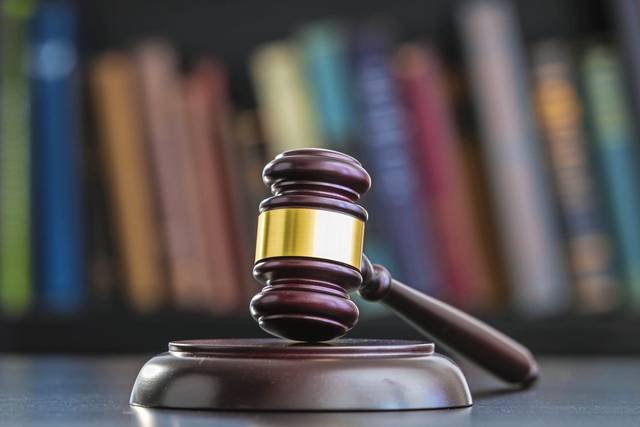https://triblive.com/local/pittsburgh-man-convicted-of-murder-to-get-hearing-on-double-jeopardy/
Pittsburgh man convicted of murder to get hearing on double jeopardy

A Pittsburgh man found guilty of third-degree murder two years ago will get a hearing to determine if the retrial of his case — which resulted in his conviction — was double jeopardy.
Carlos Harris, 26, was convicted of killing Daren Scott, 25, of Munhall on Aug. 24, 2015, as Scott drove his car along East 12th Avenue in Homestead.
However, in a 20-page opinion issued Thursday, the Pennsylvania Superior Court ordered that the trial judge in the case conduct a double jeopardy hearing to see if Harris’ rights were violated.
The Constitution’s double jeopardy clause prohibits people from being prosecuted twice for the same crime.
Harris, who lived in the city’s Arlington neighborhood, initially had a nonjury trial before Allegheny County Common Pleas Judge Thomas E. Flaherty in November 2017. However a mistrial was declared after Deputy District Attorney Chris Avetta produced 869 pages of phone records that the defense had never seen before.
Additionally, during the first trial, evidence was presented that a gunshot residue collection kit obtained from a witness was never tested, and neither were bullet fragments recovered from the victim’s vehicle. In addition, DNA testing was never ordered for a towel and T-shirt that were found wrapped around the alleged murder weapon.
At the time, Harris’ attorney, Owen Seman, filed a motion to bar a retrial based on double jeopardy. It was denied.
Flaherty found that the prosecution’s actions were “not done with the intent to provoke” a mistrial or in bad faith.
Following the second nonjury trial, Flaherty found Harris guilty and ordered him to serve 27 to 34 years in prison.
Harris appealed to the Superior Court, and the public defender’s office argued that the initial mistrial gave the prosecution the chance to prepare additional favorable evidence — like the DNA testing — that it did not have at the time of the first trial.
“Without this time, the commonwealth would have had no testimony or response to the defense theory of the case.”
Harris’ attorneys accused the prosecution of intentionally provoking the mistrial to have additional time to strengthen its case.
The Allegheny County District Attorney’s Office argued in the appeal that none of the evidence was intentionally withheld and was turned over as soon as Avetta obtained it.
“There is no point at which the commonwealth is obligated to stop a criminal investigation, so there is nothing illegal or unethical about a prosecutor ordering follow-up testing, even in the middle of trial or after a mistrial is declared,” they wrote. “A trial court cannot lawfully order the commonwealth to stop investigating a crime, or to stop turning over discovery to the defense.”
In addition, the prosecution argued that any fair trial issues Harris faced in the first trial were cured by receiving the second, new trial.
The Superior Court disagreed.
“When double-jeopardy principles bar a retrial, it is not because a fair trial cannot be obtained in a subsequent prosecution,” they wrote. “Instead, the purpose of the remedy is to deny the reward of a second trial to a prosecutor who intentionally or recklessly sabotages the first in order to avoid an acquittal.”
The appellate court opinion found that Flaherty’s analysis of the double jeopardy claim based on prosecutorial misconduct was “cursory,” and contained no specific factual findings about the prosecution’s delayed disclosures.
Without testimony on that issue, there is no way to assess the double-jeopardy claim, the court wrote.
The Superior Court suggests that having Avetta’s testimony — subject to cross-examination — would be valuable.
Flaherty’s assertion that there was not misconduct “is incompatible with the fact that it granted a mistrial based on the prosecutor’s dilatory disclosures.”
Copyright ©2026— Trib Total Media, LLC (TribLIVE.com)
